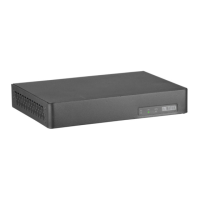Matrix PRASAR UCS System Manual 1233
How it works
To be able to use this feature,
• Select the Enable SIP over TLS check box in “Configuring VoIP Parameters”.
• Select Transport Mode
143
as TLS in Location-1 of SIP Extension Settings of the respective Extended IP
phone.
• Make sure the clients communicating with the server over TLS protocol are compatible with the TLS
version configured in the system. To know more, refer Allowed TLS Versions in “Security Settings”.
• Make sure the Date and Time of the server is synchronized with the SNTP Server.
• Make sure that the validity of the Certificate has not expired to ensure secure connection between the
clients and the server.
Now, let us understand how it works,
• The system has a default Root CA certificate installed which is generated using your own company related
details.
• The Root CA certificate is used to create the System Certificate (self-signed), which is used by the clients
for secure communication with the server.
• If you want to use System Certificate signed by some third-party Certificate Authority, then you need to
generate a CSR (Certificate signing request). For example, for Standard SIP clients and third-party
servers.
• When you generate and download the CSR, two files are saved — the CSR file and the Private key. You
may secure the Private key using a Pass-phrase.
• Send the CSR file only to the authorized Certificate Authority (CA), get it signed and upload the CA-Signed
System Certificate along with the private key in your system. The same pass phrase, if configured while
generating CSR, needs to be entered while uploading the CA-signed certificate in your system.
• After the Certificate is successfully uploaded, it is displayed in the list of certificates.
• The System Certificates (Self-signed or CA-signed) thus ensure secure communication for SIP over TLS
and HTTPS between the server and clients.
How to configure
• Log in as System Engineer.
• Click Maintenance.
• Under Maintenance, click Certificate Management.
143. Not applicable for SPARSH VP248 and Standard SIP Phones.

